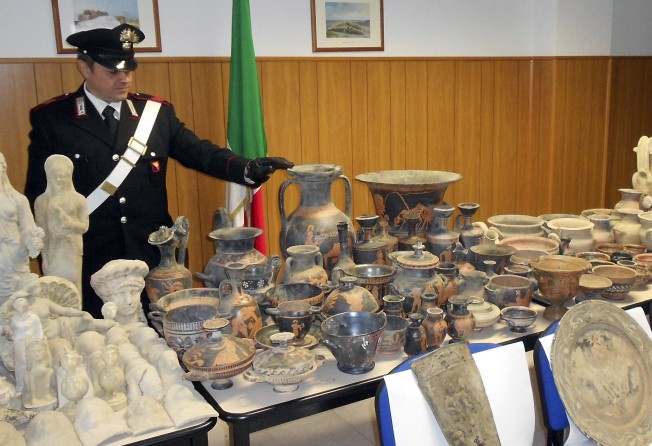25,000 antiquities seized in European crackdown on trafficking ring
Coordinated raids netted Greek and Roman archaeological items worth over US$46 million

Police forces in four countries on Wednesday seized some 25,000 Greek and Roman archaeological items worth over 40 million euros (US$46 million) in predawn raids, cracking down on illegal trafficking in cultural goods.
Some 250 officers in Italy, Spain, Britain and Germany simultaneously swooped in on 40 houses – the culmination of a four-year investigation led by the Italians, the European police agency said.
In Italy, the raids were focused on the regions of Sicily, Calabria, Piedmont and Apulia, in what is considered one of the biggest crackdowns in such crimes in Italian history.
Prosecutors believe the items were illegally excavated in Sicily, under commission by a London art dealer.
In the Sicilian Caltanissetta area, “which is rich in archaeological sites from the Greek and Roman epochs, local members of the organised crime group illegally excavated artefacts”, Europol said.
The items were then smuggled out of Italy, “equipped with false provenances and sold via German auction houses”.
Facilitators in Barcelona and London helped organise the “supply chain” and provided technical support.
Police also seized 1,500 tools, including metal detectors, in the early morning raids.
Major Luigi Mancuso of the Carabinieri paramilitary art squad in Palermo, Italy, said Wednesday that investigators allege that the digs were commissioned by a London art dealer, William Veres, 64, who was served with an international warrant.
“International cooperation is key to the success of such investigations in the field of trafficking of cultural goods, in which artefacts are moved through several EU countries and levels before they are brought to the legal market,” Europol added.